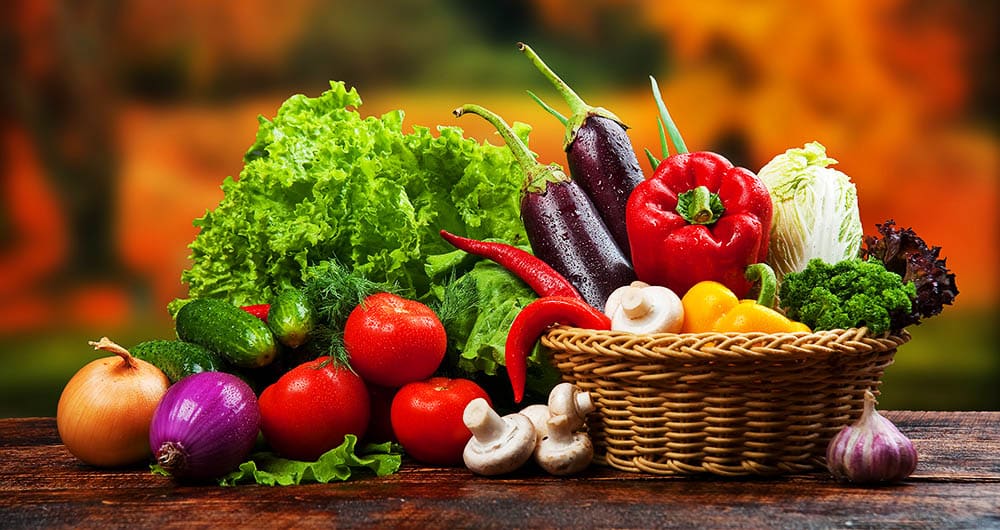Vegetables should be an essential part of your daily diet as they are a rich source of essential vitamins, minerals, and fiber. Incorporating a variety of vegetables into your meals not only provides essential nutrients but can also help reduce the risk of chronic diseases. In this article, we’ll discuss the top 10 vegetables that you should add to your diet.
1. Leafy Greens
Leafy greens such as spinach, kale, collard greens, and arugula are packed with vitamins and minerals, including vitamin K, which helps support bone health. They also contain antioxidants that help protect against disease and cellular damage. Additionally, leafy greens are high in fiber which helps regulate digestion.
Tip:
Add leafy greens to smoothies or salads, sauté with garlic and olive oil, or steam them and add them to omelets.
2. Broccoli
Broccoli is a cruciferous vegetable, which is known for its cancer-fighting properties. It is high in vitamin C, vitamin K, and fiber, making it a great addition to any diet. It also helps reduce inflammation and support cardiovascular health.
Tip:
Roast broccoli in the oven with olive oil and sea salt for a crunchy snack, or add chopped broccoli to pasta dishes or stir-fries.
3. Carrots
Carrots are a great source of beta-carotene, which is converted into vitamin A in the body. Vitamin A is essential for eye health, immune function, and skin health. Carrots are also high in fiber and potassium.
Tip:
Add carrot sticks to hummus or guacamole, roast them in the oven with a drizzle of honey, or grate them and mix them into slaws or salads.
4. Bell Peppers
Bell peppers come in a variety of colors and are rich in vitamin C and antioxidants, which help protect against cellular damage. They are also high in fiber, which can aid in digestion and promote a feeling of fullness.
Tip:
Slice up bell peppers and serve with hummus, sauté them with onions and olive oil, or stuff them with quinoa or brown rice.
5. Tomatoes
Tomatoes are a great source of lycopene, an antioxidant that helps protect against cellular damage and may reduce the risk of certain cancers. They are also high in vitamin C and potassium.
Tip:
Add sliced tomatoes to sandwiches or salads, roast them with garlic and herbs, or make a fresh tomato sauce for pasta or pizza.
6. Sweet Potatoes
Sweet potatoes are high in beta-carotene, which is converted into vitamin A in the body. They are also a great source of vitamin C, fiber, and potassium. Additionally, they have a lower glycemic index than regular potatoes, meaning they won’t spike blood sugar levels as much.
Tip:
Roast sweet potatoes with cinnamon and honey, mash them as a healthy alternative to regular mashed potatoes, or make sweet potato fries.
7. Cabbage
Cabbage is another cruciferous vegetable that is high in vitamin C, fiber, and antioxidants. It also contains compounds that help reduce inflammation and support digestive health.
Tip:
Sauté cabbage with onions and garlic, add it to stir-fries, or make cabbage rolls stuffed with quinoa or rice.
8. Cauliflower
Cauliflower is a cruciferous vegetable that is high in vitamins C and K, fiber, and antioxidants. It also contains compounds that have been linked to reducing the risk of certain cancers.
Tip:
Roast cauliflower with garlic and olive oil, mash it as a healthy alternative to mashed potatoes, or make cauliflower rice.
9. Brussel Sprouts
Brussel sprouts are a cruciferous vegetable that is packed with fiber, vitamins C and K, and antioxidants. They also contain compounds that have been linked to reducing the risk of certain cancers.
Tip:
Roast brussel sprouts with sea salt and olive oil, sauté them with garlic and butter, or shred them and add them to salads.
10. Asparagus
Asparagus is high in vitamins C, K, and folate, which is essential for cell growth and development. It is also a great source of antioxidants, which can help protect against cellular damage.
Tip:
Roast asparagus with olive oil and sea salt, add it to omelets or quiches, or serve it as a side dish with grilled chicken or fish.
Summary:
Incorporating a variety of these top 10 vegetables into your diet can provide essential nutrients and help reduce the risk of chronic diseases. Experiment with different cooking methods and recipes to find new ways to add them to your meals. Remember, a healthy diet is about balance and moderation, so be sure to include a variety of foods from each food group in your daily meals.
- Unlock the Secrets of Chinese Cuisine: Why You Need to Try These Delicious Dishes Today! - 28 de abril de 2023
- Eat Your Way to Better Health with Our Top 10 Vegetables! - 28 de abril de 2023
- Delicious and Safe: Why Cooking for Celiacs is Easier Than You Think - 28 de abril de 2023
